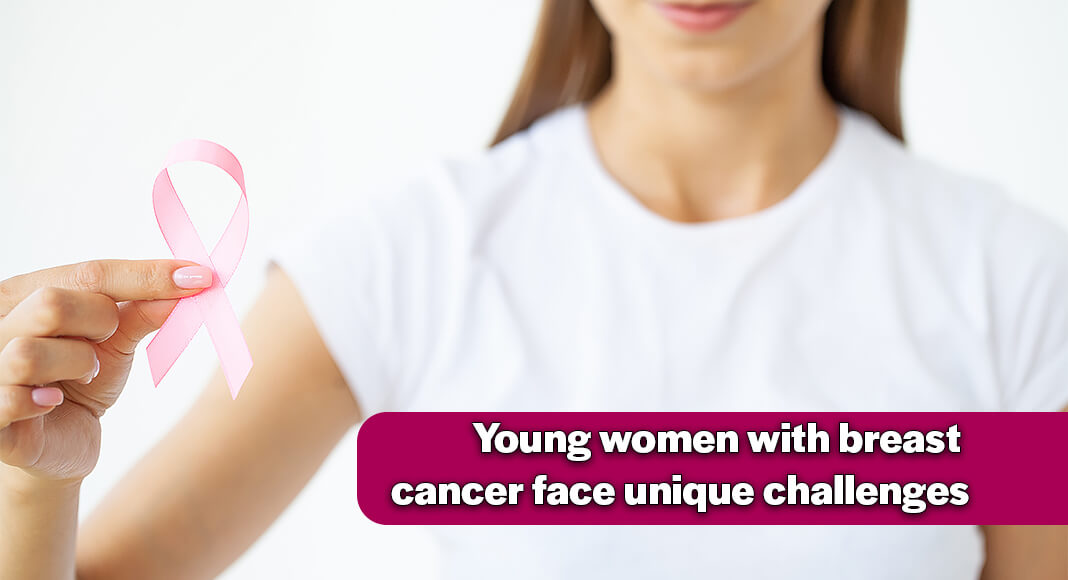
Mega Doctor News
By American College of Surgeons (ACS)
Newswise — CHICAGO — About 1 in 8 women will be diagnosed with breast cancer in their lifetime, making it the most common non-skin cancer diagnosed in women. While the disease most often affects women over 50, more young women are being diagnosed at a time in life when many are focused on their careers, relationships, and family-building.
Researchers have noted an annual 1% increase in breast cancers in all women, and an even higher increase — 1.4% — in women younger than 50. Experts with the American College of Surgeons (ACS) share what they want all young women to understand about breast cancer.
Breast cancer has a high survival rate if caught early
Approximately 10% of all new breast cancer diagnoses are found in women 45 and younger. However, despite the increase, the disease has one of the highest survival rates of all cancers. According to data from the National Cancer Database, women diagnosed with Stage 1 breast cancer have about a 93% 5-year survival rate. Survival rates decline with more advanced stages of breast cancer but remain high compared to some other cancers.
“There are now more women who are surviving breast cancer than who have breast cancer,” said Laurie J. Kirstein, MD, FACS, chair of the ACS Commission on Cancer (CoC) and a breast surgical oncologist at Memorial Sloan Kettering in New York. “The outlook for breast cancer is so much better than it used to be, and our treatments have also advanced significantly, especially if you get the right care.”
The U.S. Preventive Services Task Force now advises that women at average risk of developing breast cancer begin screening with a mammogram every two years starting at age 40, which is 10 years earlier than previously recommended. Women with a family history of the disease or other risk factors should consider getting screened earlier and with additional techniques such as an ultrasound or breast MRI. Screening can help detect breast cancer when it is at an earlier stage and easier to treat.
Cancer treatments can impact future fertility
Some breast cancer treatments — while effective at treating the cancer — can have a damaging impact on a woman’s fertility and affect other areas of health, from heart and sexual health to bone density. These potential effects can be especially daunting for women considering having children in the future and building their careers.
“When a young woman is diagnosed with breast cancer, one of the important things we’ll want to discuss is her family planning goals and if she is interested in opportunities for fertility preservation,” said Mediget Teshome, MD, MPH, FACS, vice-chair of the ACS Cancer Surgery Standards Program, and a breast surgical oncologist at UCLA Health in Los Angeles, California. “Discussions focused on quality of life and goals should happen early on, ideally before treatment even begins, and continue throughout the treatment course into survivorship.”
Because cancer treatments can impact ovarian function and the health of a woman’s eggs, early referrals to a reproductive endocrinologist before cancer treatment are vital for family planning. Fertility preservation options such as egg or embryo freezing through IVF can usually be completed before cancer treatment begins, and these specialists can also offer family-building options after treatment.
Referrals to other specialists — physical therapists, dieticians, and counselors — can help women manage some of the emotional and physical effects associated with breast cancer treatment, including painful swelling and fatigue. The CoC, which accredits approximately 1,400 cancer centers nationwide, and the ACS National Accreditation Program for Breast Centers have established standards to guide centers on survivorship, ensuring that the long-term consequences of cancer treatment are addressed early on.
Treatment options are becoming more precise
Most women with breast cancer will have multiple treatment options to choose from, reflecting decades of studies that have pushed breast cancer into one of the most researched cancers. Genetic testing for inherited mutations that raise breast cancer risk and biomarker testing of tumors can guide doctors in selecting the treatment option most likely to work for each patient.
Treatment options such as hormone therapy or immunotherapy can be used with surgery to optimize outcomes for women, including those with Stage 4 cancer or aggressive tumor types. A recent analysis from the ACS Cancer Programs found that use of hormone therapy, which slows or stops the growth of certain types of breast cancers, before surgery has more than doubled since 2018.
“It’s important for all women, no matter their age or where they live, to understand that they are at risk of developing breast cancer,” said Daniela A. Ochoa, MD, FACS, CoC State Chair of Arkansas, and a breast surgical oncologist at the University of Arkansas in Little Rock, Arkansas. “At the same time, I want women who are newly diagnosed to feel hope. Women should know that in most cases, breast cancer is highly survivable, especially when caught early, and it is okay to take time to ask questions about what treatment options are available to you.”









